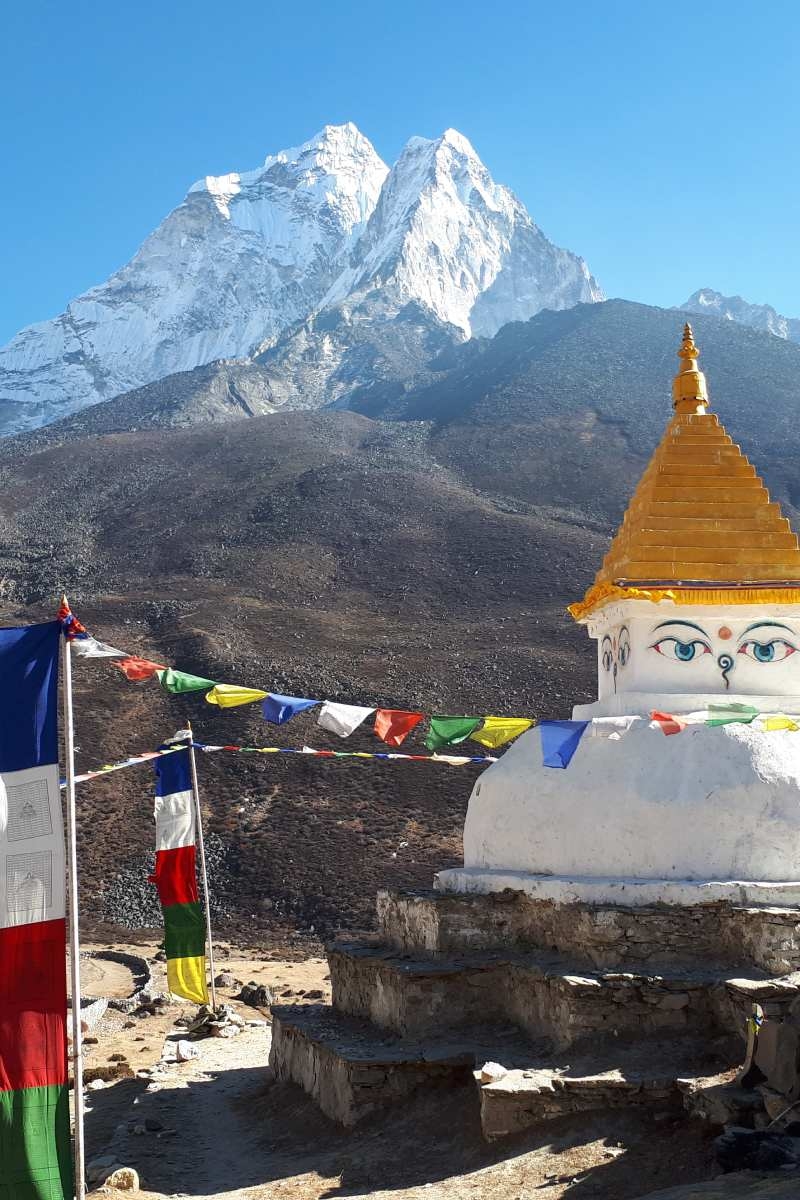Highlight
- Reach Larkya La Pass(5,167m) and get breathtaking views of Mt Manaslu, Lamjung Himal, Kang Guru, Annapurna II, and more.
- Awe-inspiring views of mountains, hills, terrains, and valleys.
- Discover about the rural lifestyle of the locals who share Tibetan Culture.
- Wander into the traditional villages of the region.
- Trek beyond the rivers, streams, dense vegetation, and suspension bridges.
- A scenic road trip from Kathmandu to Sotikhola.
Overview
Manaslu Circuit Trek is just a fantastic opportunity to walk through Nepal’s beautiful side, which many are yet to see. If you have a clue, Manaslu Region is the terrace of the eighth highest mountain in the world.
This trek, Manaslu Circuit Trek, takes you on an exploration of the region. Yet, do not believe this trek is all about Mt Manaslu. It is much more than that. As its name says, Manaslu Circuit Trek is a circuit that goes around the Manaslu Region. One trekking on this circuit gets to enjoy the true journey of natural and cultural sides. Firstly, let’s talk about its natural side.
You may or may not know, but Manaslu Region is bestowed by some of the best landscapes in the world. The lush greenery, streams, rivers, and waterfalls make it even more scenic. The trek’s highest point, Larkya La Pass (5,160m), displays unreal mountain views like Manaslu, Kang Garu, Annapurna II, Himchuli, and more. Anyone who will do this trek will get to walk through and see everything mentioned above.
Following, the trek is also about something related to culture and tradition. As you will trek through the region’s traditional villages, you will meet and interact with many locals. They show a lovely, inspiring, and unique tradition and culture, most of which they learned from the Tibetan side. Hence, this trek has a cultural part as well to share with you.
In a nutshell, Manaslu Circuit Trek is one of the best off-the-beaten treks in Nepal, if not in the world. From two sides, nature and culture, this trek will make you full of memories and experiences. Ultimately, all of that will make up some adventure for you!
Outline Itinerary
Day 1: Arrival in Kathmandu and Rest in the Hotel
Day 2: Kathmandu Sightseeing and Trek Arrangement
Day 3: Bus Drive from Kathmandu to Sotikhola (730m- 9hours)
Day 4: Trek from Sotikhola to Machha Khola (930m- 6hours)
Day 5: Trek from Machha Khola to Jagat (1,340m- 7hours)
Day 6: Trek from Jagat to Deng (1,880m- 7hours)
Day 7: Trek from Deng to Namrung (2,660m- 7hours)
Day 8: Trek from Namrung to Samagaon (3,530m- 7hours)
Day 9: Rest Day in Samagaon
Day 10: Trek from Samagaon to Samdo (3,875m- 5hours)
Day 11: Acclimatization Day at Samdo
Day 12: Trek from Samdo to Larkya Phedi (4,460m- 5hours)
Day 13: Trek from Larkya Phedi to Larkya La Pass and Bimthang (3,720m- 9hours)
Day 14: Trek from Bimthang to Dharapani (1,910m- 8hours)
Day 15: Trek from Dharapani to Syange and Drive to Besisahar
Day 16: Drive from Besisahar to Kathmandu
Day 17: Departure from Nepal
FAQ's
Where is the Manaslu Circuit Trek located?
- The Manaslu Circuit Trek is in north-central Nepal, around Mount Manaslu (8,163 m), the world’s eighth-highest mountain.
What is the highest point of Manaslu Circuit Trek?
- The highest point is Larkya La Pass (5,160 m).
What is the best time for the Manaslu Circuit Trek?
- The best seasons are spring (March–May) and autumn (September–November) for clear weather and mountain views.
Is a guide required for the Manaslu Circuit Trek?
- Yes. The Manaslu region is a restricted area, and trekking with a licensed guide is mandatory.
What permits are required for the Manaslu Circuit Trek?
You need:
-
Manaslu Restricted Area Permit (RAP)
-
Manaslu Conservation Area Permit (MCAP)
-
Annapurna Conservation Area Permit (ACAP
Is the Manaslu Circuit Trek a tea house trek?
- Yes. It is a tea house trek, with basic lodges available along the route.
What are the main highlights of the Manaslu Circuit Trek?
- Highlights include Larkya La Pass, Tibetan-style villages, monasteries, remote Himalayan landscapes, and views of Manaslu, Himalchuli, and Ganesh Himal.









